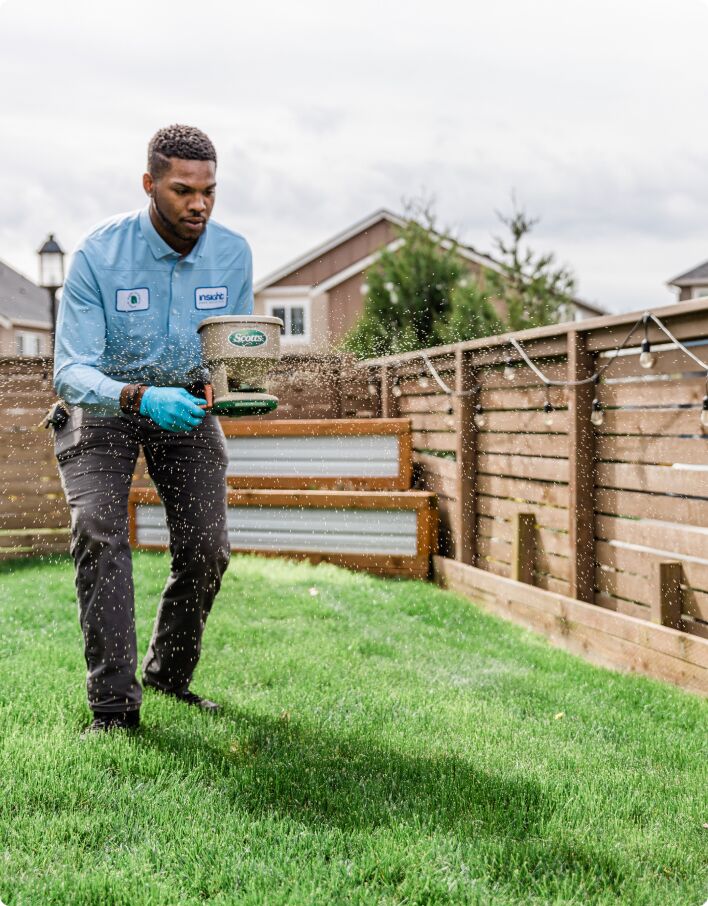Say Goodbye to Unwanted Visitors: Orem Pest Control at Your Service
Wiki Article
Discovering the Different Kinds of Insect Control Techniques and Their Applications
Bug control is a crucial element of maintaining a secure and healthy and balanced environment, whether it be in property, industrial, or agricultural settings. From chemical methods that target specific bugs to biological techniques that harness all-natural predators, the realm of parasite control is large and varied.Chemical Parasite Control Strategies
Chemical bug control techniques are commonly made use of in agriculture and bug administration to efficiently get rid of or control pest problems. These approaches entail the use of chemical materials, such as insecticides, herbicides, and pesticides, to remove or reduce parasite populaces that present a threat to crops, livestock, or human health and wellness. Chemicals, for instance, target particular bugs like rodents, weeds, or bugs, interrupting their life cycles or triggering direct damage upon call. Herbicides are especially made to control unwanted vegetation that contends with crops for resources and nutrients. Insecticides, on the various other hand, are utilized to deal with insect bugs that can harm plants and send illness.While chemical pest control strategies can be very effective in taking care of parasite populations, they likewise elevate issues about prospective environmental and wellness risks. It is important to adhere to security standards, use incorporated pest management strategies, and take into consideration alternate methods to reduce the negative effects of chemical parasite control strategies.
Biological Insect Control Techniques
 Organic parasite control approaches utilize living microorganisms to lower and take care of bug populaces in a ecologically friendly and lasting fashion. One typical method is the launch of ladybugs to combat aphids in gardens, as ladybugs are all-natural killers of these devastating parasites.
Organic parasite control approaches utilize living microorganisms to lower and take care of bug populaces in a ecologically friendly and lasting fashion. One typical method is the launch of ladybugs to combat aphids in gardens, as ladybugs are all-natural killers of these devastating parasites.
Biological bug control techniques provide numerous advantages over chemical methods. Overall, biological pest control techniques present a natural and efficient alternative to standard chemical therapies, promoting a well balanced community and healthier settings.
Physical Insect Control Approaches
Making use of physical methods to regulate insects includes using mechanical or non-chemical methods to manage and minimize parasite invasions properly. These strategies rely upon physical barriers, traps, and various other techniques to prevent and remove bugs without using unsafe chemicals. One common physical pest control approach is the installation of fencings, nets, or displays to block parasites from getting in certain areas. This approach is especially reliable in staying out bugs and tiny animals from buildings or yards.Another physical technique is making use of traps, such as breeze traps for rodents or scent catches for bugs. These catches aim to capture pests without positioning any kind of threat to human beings or the atmosphere. Additionally, physical control methods can include strategies like handpicking parasites off plants, using vacuum cleaner devices to get rid of insects, or employing warm therapies to remove bed pests and other bugs in infested locations.
Integrated Pest Administration Methods
Carrying out a holistic technique to pest monitoring, Integrated Bug Management (IPM) approaches aim to incorporate different reliable techniques to stop and control parasite problems while from this source minimizing ecological influence and making certain sustainable bug control methods. IPM entails the assimilation of several control techniques such as organic control, social methods, mechanical control, and the careful use chemicals.

In addition, IPM stresses the significance of surveillance and evaluating pest populaces to identify the most proper control strategies. By executing IPM strategies, bug control initiatives come to be much more targeted and reliable, reducing the risks connected with too much pesticide use and promoting long-lasting parasite management remedies.
Natural and Organic Bug Control Options

One popular organic pest control approach is neem oil, originated from the seeds of the neem tree, which acts as a repellent and interferes with the development and advancement of insects. Diatomaceous planet, an all-natural silica-based powder, is another reliable organic insect control alternative that works by drying out bugs upon get in touch with. By incorporating natural and all-natural pest control options right into parasite administration approaches, individuals can effectively regulate insects while decreasing harm to the atmosphere and advertising lasting practices.
Final Thought
To conclude, various bug control techniques such as chemical, organic, physical, incorporated insect monitoring, and natural options are readily available for efficiently handling insect infestations. Each method has its very own advantages and applications depending upon the sort of insect and the atmosphere. By comprehending the different sorts of pest control strategies and their applications, people can make informed choices on the most suitable approach to regulate insects and shield their property.Chemical more parasite control methods are extensively used in farming and insect monitoring to efficiently remove or control pest infestations - Orem Pest Control. Natural parasite control techniques involve using organic control agents, such as bloodsuckers or killers, to manage insect populaces. By incorporating natural and natural parasite control options into insect administration strategies, people can properly manage bugs while minimizing harm to the atmosphere and advertising lasting methods
In final thought, different insect control methods such as chemical, organic, physical, incorporated pest administration, and natural choices are readily available for efficiently taking care of bug infestations. By recognizing the different kinds of insect control strategies and their applications, people can make enlightened decisions on the most suitable strategy to regulate parasites and safeguard their building.
Report this wiki page